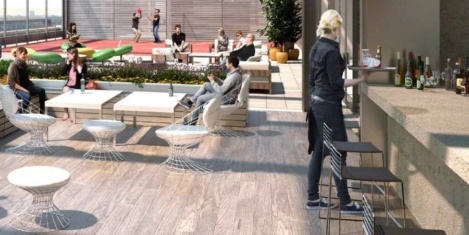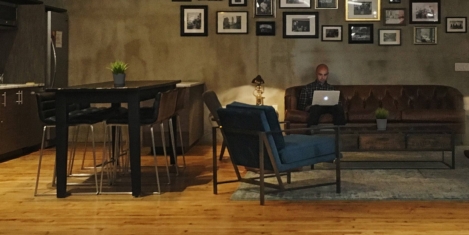June 9, 2017
Majority of employees do not think their company culture is embracing the digital age 0
 A majority of employees (62 percent) believe their company culture is one of the biggest hurdles in the journey to becoming a digital organisation, and this is putting companies at risk in falling behind competition in today’s digital environment claims a new report. The Digital Culture Challenge: Closing the Employee-Leadership Gap published by Capgemini, and Brian Solis, a prominent digital analyst and world renowned author, uncovers a significant perception gap between the senior leadership and employees on the existence of a digital culture within organisations. While 40 percent of senior-level executives believe their firms have a digital culture, only 27 percent of the employees surveyed agreed with this statement. The survey asked respondents to assess their companies’ digital culture based on seven attributes: their collaboration practices, innovation, open culture, digital-first mindset, agility and flexibility, ‘customer centricity’ and a data-driven culture. Insights gathered from the report, and through a series of focus interviews, helped to identify some of the reasons behind this digital culture gap including senior leaders failing to communicate a clear digital vision to the company, the absence of digital role models and a lack of KPIs aligned to digital transformation goals.
A majority of employees (62 percent) believe their company culture is one of the biggest hurdles in the journey to becoming a digital organisation, and this is putting companies at risk in falling behind competition in today’s digital environment claims a new report. The Digital Culture Challenge: Closing the Employee-Leadership Gap published by Capgemini, and Brian Solis, a prominent digital analyst and world renowned author, uncovers a significant perception gap between the senior leadership and employees on the existence of a digital culture within organisations. While 40 percent of senior-level executives believe their firms have a digital culture, only 27 percent of the employees surveyed agreed with this statement. The survey asked respondents to assess their companies’ digital culture based on seven attributes: their collaboration practices, innovation, open culture, digital-first mindset, agility and flexibility, ‘customer centricity’ and a data-driven culture. Insights gathered from the report, and through a series of focus interviews, helped to identify some of the reasons behind this digital culture gap including senior leaders failing to communicate a clear digital vision to the company, the absence of digital role models and a lack of KPIs aligned to digital transformation goals.














 Less stress and better workplace relationships are the reason why the happiest regions to work in the UK are Yorkshire and the Humber; while uninteresting work is the reason why employees in Scotland and the South are the most unhappy. Research into
Less stress and better workplace relationships are the reason why the happiest regions to work in the UK are Yorkshire and the Humber; while uninteresting work is the reason why employees in Scotland and the South are the most unhappy. Research into 



















May 31, 2017
IBM’s retreat from flexible working. The world responds 0
by Mark Eltringham • Comment, Flexible working
In February 2013, Yahoo set off a mighty global stink when it sent a memo telling staff to forget about working from home, Starbucks, wherever and return to its corporate embrace. The intention of recently installed CEO Marissa Mayer was to increase collaboration and productivity by getting everybody in the same space. There is some logic to this, except for one thing. As Andrea Hak wrote for us in her masterful post mortem of the whole debacle last year: “With this change Yahoo was trying to attack a symptom rather than the root of the problem. Pitting employees against each other in a stack ranking style system actually discourages collaboration. The experiences of companies that ditched this system have shown that employees are more likely to try and undermine the competition than work together.” So who in the tech sector would possibly make the same mistake again? The answer is IBM.
More →